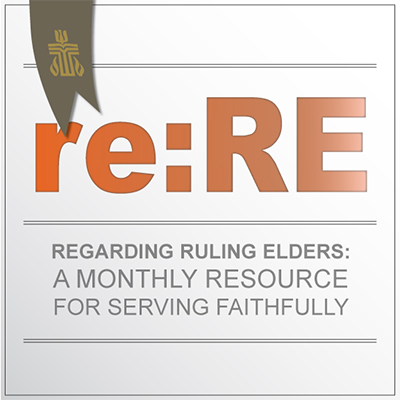Will you be a faithful ruling elder, watching over the people, providing for their worship, nurture, and service? Will you share in government and discipline, serving in councils of the church, and in your ministry will you try to show the love and justice of Jesus Christ?
As I write this, the funeral service for Queen Elizabeth II is on television. Coverage is a curious mix of solemnity, celebration, history, gossip, and protest, topped off with pageantry. Along with justifiable questions about colonialism, class, and wealth, the tone is largely public grief and gratitude for a long-serving ruler.
I can’t parse all the differences between a monarch’s rule and the role of ruling elders. But the backdrop of a leader who faithfully served during challenging times provides color commentary as we consider the ordination question for ruling elders. After watching days of royal flashbacks, I can almost hear the question in Elizabeth’s clipped British accent, can’t you? (Scroll back up and read it in your poshest voice.)
Now put yourself back in the sanctuary, or on the Zoom screen, where you were asked this question upon ordination or where those called to serve on your behalf were asked.
Unlike a monarch at their coronation, you aren’t surrounded by the elite of society, media and government. You are surrounded by the church — the Body of Christ. It’s a particular collection of Jesus-followers. Each has their own fears and flaws, hopes and gifts, tastes and talents. With this question, you promise to watch over them all.
But you don’t do it alone! Claiming the shared authority in our polity, you promise — along with others — to provide opportunities for the whole people of God to worship, nurture faith, and serve the world. This may mean labor on a particular ministry team or council as you put your gifts to work serving the kin-dom of God. It means participating in decisions about ministry priorities. And it often means a new role in worship.
On my TV, coverage continues during the worship service in Westminster Cathedral. The bearers carefully move the queen’s coffin with flowers and a jeweled crown on top. I wonder about those young men in uniform. How were they selected? How much did they practice? Are they able to worship at all, or are they too worried about messing up their highly visible job?
I think of ruling elders in congregations serving communion for the first time. Many are afraid to make a mistake — handle the elements incorrectly, stand in the wrong place, or drop something. (I’ve done all those things and it was fine!) I want to say to the bearers what I’d say to ruling elders: It works best when we work as a team; help one another out; don’t forget to serve each other; remember it’s about God and not about us.
While most viewers’ attention is on what’s happening inside the cathedral, there is still ongoing business of the realm and the crown’s part in that. Reporters speculate about how the new king might have different priorities and unexpected challenges. Just as a royal changeover results in a rotating wheel of titles, property, and responsibilities, a new slate of ruling elders means change for the church at every level. Sessions and councils adjust. New ideas emerge. The business of the Body continues.
As the hours of funeral coverage continue, Puerto Rico is dealing with another devastating hurricane. Some group of news executives had to decide what to report on, and when. Imagine that meeting. I fear their question wasn’t about what they should help their viewers pay attention to, but rather, what would satisfy their shareholders and advertisers and keep up with the competition.
The connection with church is pretty obvious. When we agree to try to show the love and justice of Jesus Christ in our ministry, it guides every decision we make. How we worship. Where we spend our time and money. Whom we welcome. When we pivot our plans. What we let go of, even if it is popular. What we pay attention to, even if it is hard.
In her first Christmas address in 1952, Elizabeth asked for prayers from listeners for her upcoming coronation. Her words could be those of ruling elders answering the call to serve: “… pray that God may give me wisdom and strength to carry out the solemn promises I shall be making, and that I may faithfully serve Him and you, all the days of my life.”
For Reflection
- What parts of this ordination question sound doable to you? What parts sound harder to do?
- What do you hope is said about your service to God at your funeral service?
- How do the resources in "Coming Alive in Christ: Training for PC(USA) Ruling Elders and Deacons based on the Constitutional Questions" deepen your understanding of this question?
The Rev. Julie Coffman Hester is a pastor and writer in the Presbytery of Western North Carolina. She is inspired by faithful ruling elders, like her parents, and the remarkable disciples with whom she has served in local congregations.
This article is the 10th in a 12-part series focusing on the constitutional questions that church leaders answer upon their ordination and installation, using some of the materials from "Coming Alive in Christ: Training for PC(USA) Ruling Elders and Deacons Based on the Constitutional Questions," which is available through Equip, the church’s online training platform.

